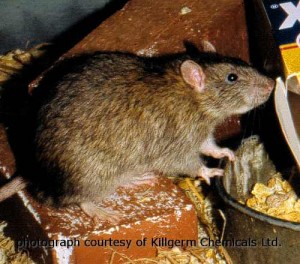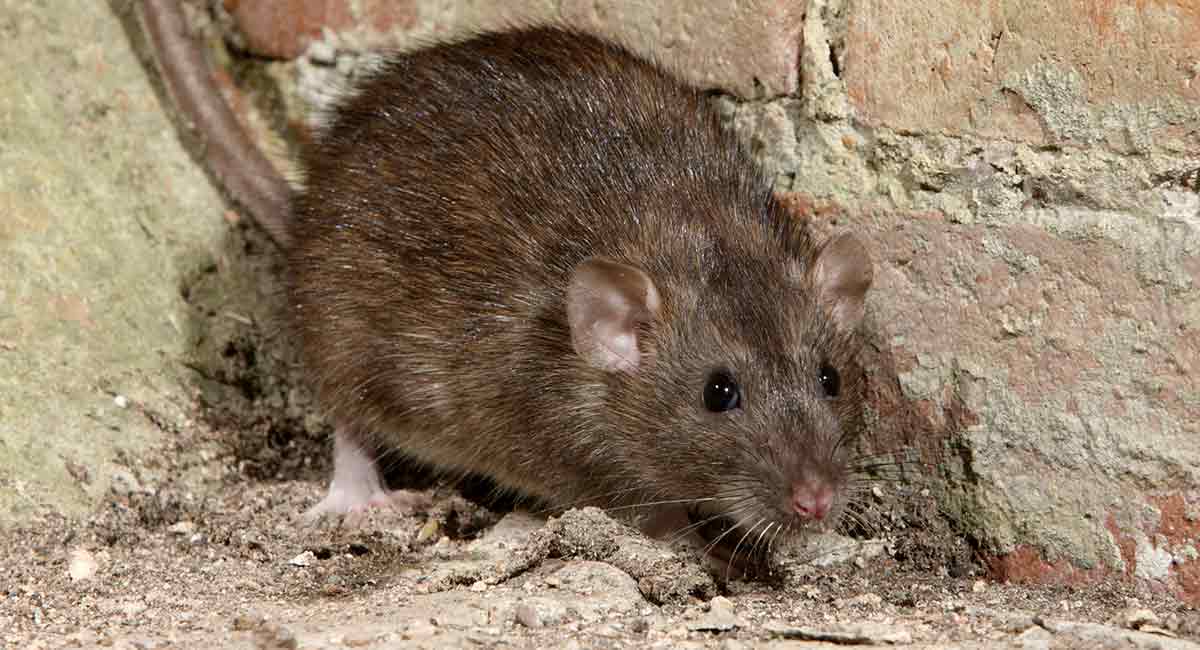All about rats
What you need to know.
Rats can be a serious problem, and come into conflict with man in several different ways. This article is intended to give you some general information about rats, their habits, and lifestyle.
Most of the rats we see in the UK are brown rats. These are the rats found around farms, gardens and outbuildings in the countryside, and also in our sewers.
People are often surprised at the size of a rat (an adult can weigh over a pound) and suspect they must have some rare or exotic escapee when they first see a brown rat perched on their compost heap.
The black rat or ship rat is much smaller and has a longer thinner tail. You are more likely to see one of these if you live in a coastal town.
Rats have never been a popular animal, probably due to their association with the plague and other diseases. They are very social and intelligent little animals, but come into constant conflict with man due to the diseases they carry and the damage that they do.
Rats in conflict with man
Rats are vectors of some very serious illnesses including Weils disease, and typhus. They also do a great deal of damage to stored products such as grain, and to our building fabrics.
Ten rats will consume about a pound of food between them each day. It does not take many rats to make a considerable dent in a few tons of stored grain.
They are also partial to eggs and small vulnerable animals such as chicks and ducklings. Rats are a common and serious problem on poultry farms attacking both food supply and the birds themselves. What they do not eat, they contaminate with diseased urine and faeces.
With constantly growing teeth, rats have no choice but to gnaw incessantly and will chew through wood, plastic, cables, and even lead. This can lead to serious fire hazards, not to mention setting off alarms and cutting off communications.
How rats breed
Each female rat can produce six litters every year. With up to eight babies in a litter, the numbers soon add up. Each baby can itself breed at about three months of age. These are very prolific animals indeed and populations can rise rapidly.
Mother rats take great care of their initially helpless babies, building a safe burrow, lining it with soft nesting material, and moving the babies to safety if needs be.
Rats will also carry food away with them and make ‘stores’ to use when food is in short supply.
About the war against rats
Man has been waging a ‘war’ against rats since time immemorial. And is likely to continue to do so for the foreseeable future. It is almost impossible to completely exclude these creatures from any outdoor location.
They are agile, great swimmers, climbers, and burrowers and can chew through or climb over almost any standard fence or barrier.
The best we can do is keep population levels to a minimum and make your property or premises, less attractive to them.
If you have, or suspect you have, a problem with rats.
Call us now for advice and information on
01428 714031

